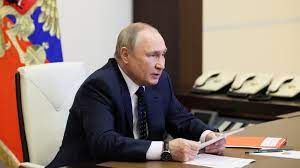
In an unprecedented move, Somalia and Russia have signed two agreements to settle Mogadishu’s significant debts to Moscow. The total amount in question is a staggering $690 million, representing a significant portion of Somalia’s debt. This announcement is a major development in the narrative of Somalia’s debt crisis, marking a promising path toward effective financial and monetary policy reform in the country.
Somalia’s Deputy Prime Minister, Salah Ahmed Jama, confirmed the agreements, elucidating that a portion of these debts would adhere to a newly devised payment schedule, while a significant part would be written off entirely. This critical step towards financial stability comes as a breath of fresh air for Somalia, a country that is currently grappling with an estimated external debt of over $5 billion.
The agreements between the two nations were signed on the sidelines of the second Russia-Africa summit, which aimed to strengthen ties between Russia and the African continent. It’s noteworthy that one of Somalia’s debts to Russia stands at $7.5 million, while the other significantly larger one, totaling over $684 million, forms part of the Paris Club loans.
In response to the agreements, the Somali government has expressed its heartfelt appreciation towards Russia. Deputy Prime Minister Jama highlighted that this move brings Somalia significantly closer to improving its financial and monetary policy. This is crucial for a country that is trying to navigate its way out of an intense debt situation.
The magnitude of Somalia’s debt is often starkly visible when compared to individual nations. Somalia owes the United States, its biggest creditor, a jaw-dropping $1 billion. By signing the agreements with Russia, Somalia has set a precedent that might inspire other creditor nations to consider similar debt relief measures.
It is important to understand that Somalia’s debt burden does not merely represent an economic challenge, but also impacts the socio-political dynamics in the country. Achieving relief from this weighty debt could have a transformative effect on Somalia’s social and economic progress, creating room for greater investment in public services and infrastructure.
This recent development is a positive move in the larger narrative of Somalia’s debt relief. By effectively handling the debts owed to Russia, Somalia is demonstrating to its international creditors its commitment to working toward fiscal responsibility and sustainable growth. This could potentially lead to further relief from other creditors, paving the way for Somalia to start afresh, financially.
In conclusion, the agreements between Somalia and Russia signify a pivotal moment in Somalia’s journey toward debt relief. This move not only addresses a large portion of Somalia’s debt but also creates a precedent for future negotiations with other nations. As Somalia inches closer to sound financial and monetary policy, the world will be watching to see how these developments shape the nation’s socioeconomic future.


















